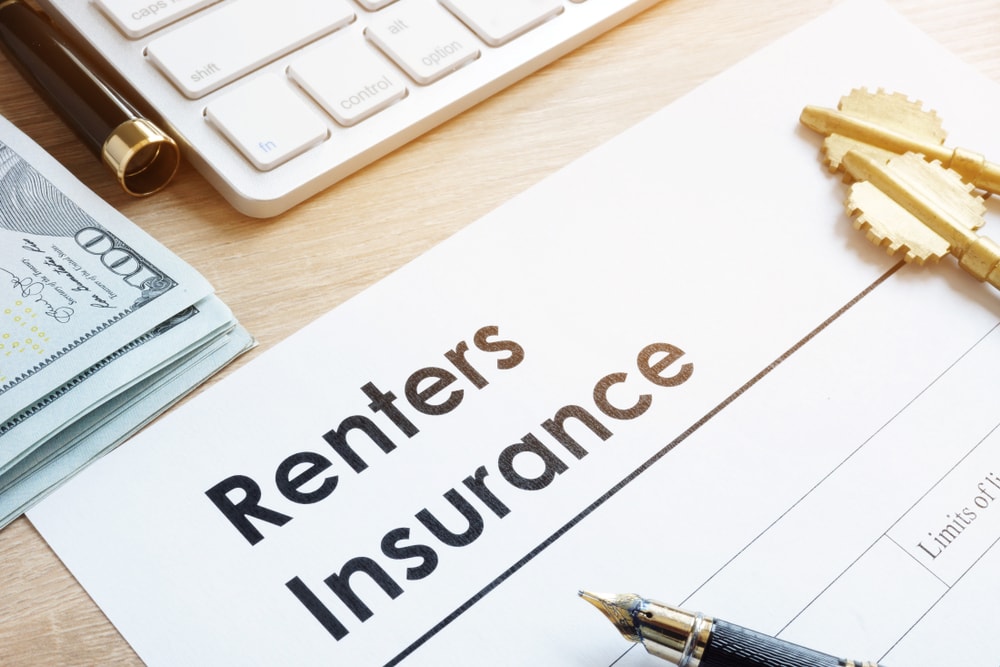How Much Renters Insurance Do I Need? Common Coverage Limits & Deductibles
-
Codee Chessher
- Last updated:

About half of the people who rent their homes in the US lack renters insurance altogether, while others may be required to buy it as per their landlord’s contract. Others may be renting a new place and contemplating how much coverage would be appropriate. It’s a reasonable question. After all, renters insurance has its own quirks, just like any type of insurance.
How much coverage you need depends on the three subcategories of renters insurance: personal property covering your possessions, liability covering medical expenses if someone gets hurt in your home, and loss of use covering expenses in the event of a covered peril rendering your home uninhabitable.

How Much Coverage Is Appropriate?
- Personal Property: $30,000
- Personal Liability: $100,000
- Loss of Use: 40% of personal property coverage
Personal Property
Personal property coverage depends on the monetary value of your possessions. If you have a lot of big-ticket items like electronics, you may opt for a higher personal property limit. This requires a thorough inventory of your items, typically along with receipts proving their value.
This coverage is the most important part of renters insurance because with your home being the landlord’s property, the house itself should be covered under their insurance policy.

Personal Liability
Liability coverage is standard with renters insurance policies and helps to cover two types of expenses. The first is medical bills incurred by people hurt on your property, and the second is legal expenses in the event that someone sues you because they were hurt on your property. Items and parts of your home that you damage may also be covered under renters insurance via liability coverage.
Loss of Use
To explain this coverage, let’s say a tree falls on your house because of a storm and punches a gaping hole through an upstairs bedroom. You can’t very well stay there while it’s under repair, so that’s where the coverage kicks in.
Loss of use coverage helps pay for living expenses and other miscellaneous expenses incurred as a direct result of you not being able to stay in your home. Hotel stays are the biggest one, but insurers generally require receipts. Laundry and takeout/fast food may also be eligible expenses covered under loss of use because you can’t cook and clean clothes at home while it’s under repair.

How to Choose a Renters Insurance Deductible
Deductibles are paid when you make a claim before the insurance will kick in. They’re also highly individual, with their amounts depending on how fast and loose you want to play things. If you want a lower deductible, you’ll have to shell out more for your renters insurance premiums. By the same token, you can lower monthly premiums by taking a higher deductible.
Both have their pros and cons. A lower deductible is nice in the event of something catastrophic happening if you don’t have much in the way of savings, but you have to pay extra for that peace of mind. On the other hand, taking a higher deductible can be a good way to put some cash back in your wallet, but if something bad happens and you need to make a claim, you have to be able to pay that higher deductible.

Replacement Cost vs. Actual Cost Value
Another essential consideration is whether your policy covers personal property using replacement cost or actual cost value. These are methods of assessing and reimbursing you for property damage, and like deductibles, they have their own pros and cons. Let’s touch on those below before wrapping up.
- Replacement cost covers a new, comparable model to your insured item at a slightly higher premium cost. An example: a 42” TV from 5 years ago would be replaced with a new 42” TV.
- Actual cash value is a bit cheaper but takes depreciation into account, so it’s better for new model items like current-year phones or computers
Looking for home RENTERS insurance?

Lemonade offers some of the best insurance plans you can find on the market today!
Conclusion
Renters insurance is one of the best ways you can protect yourself against unexpected damages and expenses when the worst comes to pass. Common coverage amounts are $30,000 for personal property, but really, you just need whatever amount is appropriate to replace your possessions.
- Related Read: How Much Does Lemonade Renter’s Insurance Cost?
Featured Image Credit: Vitalii Vodolazskyi, Shutterstock
Contents
